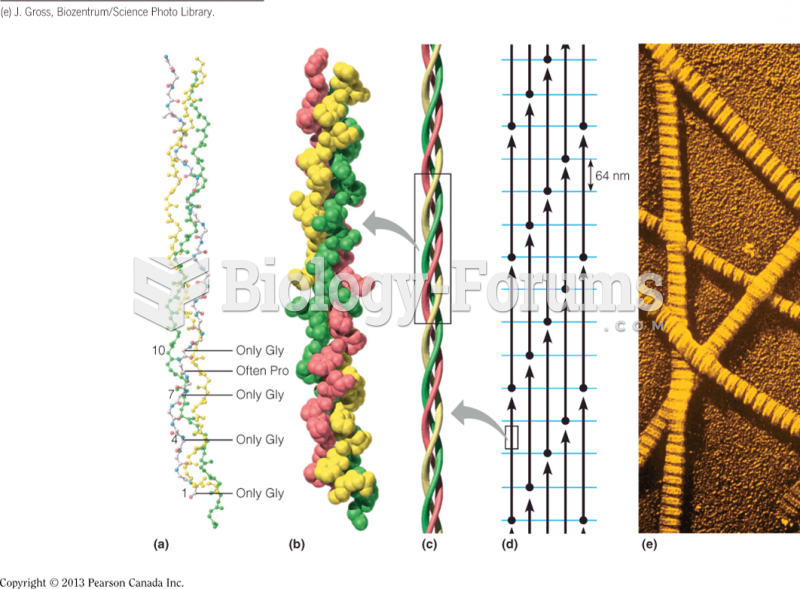|
|
|
Approximately 25% of all reported medication errors result from some kind of name confusion.
Cytomegalovirus affects nearly the same amount of newborns every year as Down syndrome.
More than 30% of American adults, and about 12% of children utilize health care approaches that were developed outside of conventional medicine.
The most dangerous mercury compound, dimethyl mercury, is so toxic that even a few microliters spilled on the skin can cause death. Mercury has been shown to accumulate in higher amounts in the following types of fish than other types: swordfish, shark, mackerel, tilefish, crab, and tuna.
During pregnancy, a woman is more likely to experience bleeding gums and nosebleeds caused by hormonal changes that increase blood flow to the mouth and nose.
 Bronchoscopy. Figure illustrates physician using a bronchoscope to inspect the patient’s bronchial t
Bronchoscopy. Figure illustrates physician using a bronchoscope to inspect the patient’s bronchial t
 Localization of a Peptide The peptide is revealed by means of immunocytochemistry. The photomicrogra
Localization of a Peptide The peptide is revealed by means of immunocytochemistry. The photomicrogra
 skeletal muscle consists of a group of fibers held together by connective tissue. It is enclosed in ...
skeletal muscle consists of a group of fibers held together by connective tissue. It is enclosed in ...




